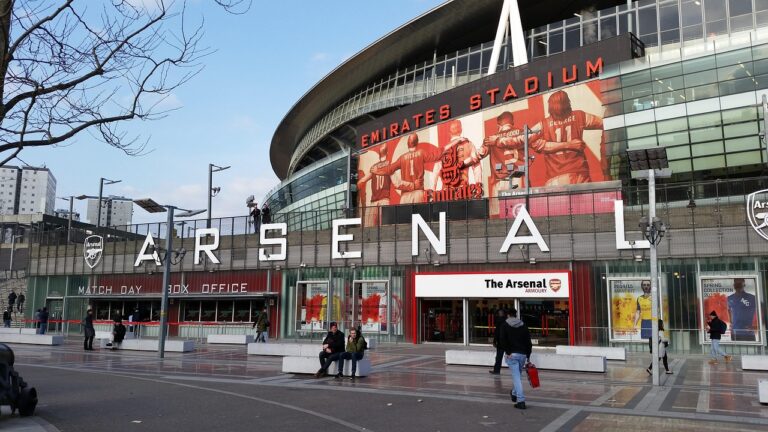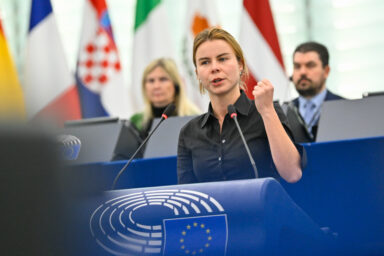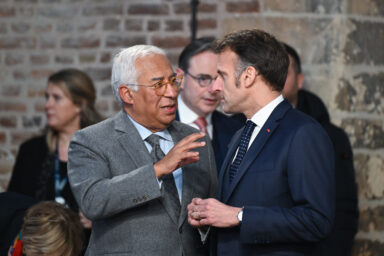The European Parliament has thrown its considerable weight behind the idea that European football should remain in European hands. More broadly, MEPs want the Commission to ensure, one way or another, that sport remains good and clean.
The EP plenary session on October 7 adopted a resolution addressing the influence of EU policies on the European Sport Model (ESM). It enjoyed the overwhelming support of 552 members, with 52 against and 35 abstentions.
The resolution calls on the European Commission to carefully consider the implications of growing foreign investment in European sport. The language seemed to suggest a particular degree of concern for football. The document underscores the need to protect the financial integrity and competitive balance of European competitions and the social values underpinning sport across the continent.
Troublesome foreigners
Strictly speaking, most of the resolution’s message falls somewhat short of revolutionary. Sports in general — good. Doping — bad. Democratic values, sustainability, solidarity — good. Match fixing — bad. Some sections, however, adressed more tangible concerns. Too much money — bad, especially from abroad. Champions League — good, just about. European Super League (a mulled breakaway competition intended to rival UEFA’s Champions League) — bad, very bad.
It makes sense. Foreign ownership has fundamentally reshaped the financial and competitive landscape of European football, with the UK and Italy at the forefront of this transformation. The trend shows no sign of abating, as investors from around the world continue to seek opportunities in Europe’s most popular sport. American investors own over a half of England’s Premier League, while a host of rich Arab countries vie for ownership in the UK, France, Italy, and Spain.
You might be interested
Consistent financial governance standards across all professional sports are needed. — European Parliament’s resolution on sport
The resolution “acknowledges the rising trend of foreign investment and ownership in European sport” and calls on the Commission to assess the effects of this shift on financial fairness and competitive balance. It stresses the need for “consistent financial governance standards across all professional sports,” including the enforcement of rules and oversight of athletes’ salaries. Financial solidarity is essential to the model’s future.
Meritocracy rules
The ESM is a distinctive framework for organising and governing sport in Europe. Built on a pyramidal structure, it begins with grassroots clubs at the base, advancing through regional and national federations to international bodies at the summit. This architecture provides a clear pathway for athlete development and competition progression.
National federations govern democratically and autonomously, operating within EU law but free from direct government interference. The “single federation principle” ensures unified governance for each sport in almost all European countries, preventing fragmentation. Thus, MEP argue, the model is both a sporting and social contract, recognising sport as a public good.
Competitions are generally open, with meritocratic promotion and relegation systems allowing clubs upward or downward movement according to performance. Revenues from professional levels flow back to grassroots, youth, and amateur sport, creating solidarity across tiers. Volunteers underpin much of the community-level operation. The model stresses the positive impact of sport (inclusion, education, fair play, integrity, social cohesion, public health, well-being, and other commendable stuff).
Governance matters
Sport, the resolution states, “serves and promotes the interests of all, rather than the profits of a few.” It warns against threats such as breakaway competitions that could fracture the existing sports ecosystem. The European Parliament urges the Commission to monitor these developments closely and to guard against the transfer of value created in European sport to investors outside Europe.
It stresses the importance of preserving the principle that promotion and relegation occur at national level, with annual performance in domestic leagues the sole criterion for qualification to European tournaments. This safeguards the “vertical nature” of the European Sport Model, vital to grassroots development and sporting solidarity. While some redistribution mechanisms are working, many grassroots levels remain heavily dependent on public funding or volunteer efforts.
We cannot afford complacency in the face of the real and immediate challenges. — European Parliament’s resolution on sport
The resolution insists on protecting sport’s “vertical nature,” meaning that domestic league results alone determine access to European competitions. The MEPs consider this verticality a fundamental guarantee of fairness and legitimacy.
No empty rhetoric!
The report rejects the idea that the EU lacks competence in sporting matters. Instead, it argues for a “long-term strategy for European sport policy,” rooted in EU values such as human rights, social solidarity and cohesion. It calls on the Commission for clear and practical guidance on applying EU competition law, free movement, and state aid rules in sport. Robust governance mechanisms are requested to reinforce the European Sport Model and ensure it evolves in alignment with European law.
The European Parliament’s resolution calls for action rather than mere rhetoric. The irony that it does so through a resolution (mere rhetoric) to influence the European Sports Model (a legally unrecognised framework) appeared lost on the MEPs.
Their resolution underlines sport’s central place in European society, culture and economy. Sport is an “important pillar of our social, cultural and economic life in Europe”, says the report, setting aside annoying minor concerns running in parallel, such as war. It concludes with a resounding message: “We cannot afford complacency in the face of the real and immediate challenges.”











